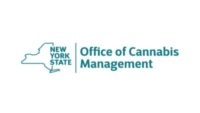At its core, Flowhub is a point-of-sale and compliance software company, but they offer much more than that. After becoming the first company to integrate with Metrc in 2015, the platform quickly became a leading software company in the space.
The system helps dispensaries manage inventory, report sales data to regulators, manage payment processing, manage workflows and simplify compliance. Following a few stints at Dixie Elixirs, Weedmaps, and Neos Vape Pens where he saw the day-to-day inefficiencies of cannabis compliance, Kyle Sherman launched Flowhub about eight years ago.
As Founder & CEO, Sherman and his team have taken Flowhub to the next level, with over 1,000 dispensary partners processing $3 billion in annual sales. We caught up with Sherman to ask about compliance challenges facing the industry, 4/20 sales data, integration technology and more.
Aaron Green: What are the major inventory and point-of-sale challenges that retailers face?

Kyle Sherman: Cannabis has yet to be federally legalized and the industry remains a highly regulated environment that’s subject to a patchwork of state and local regulations. Dispensaries face an influx of challenges compared to traditional retailers due to strict compliance requirements. Cannabis retailers are required to report all sales activities and inventory movements to their state regulators, sometimes in real time. If physical inventory does not match what has been reported to regulators, their license is at risk for suspension. Maintaining accurate inventory records across systems (including point of sale, Metrc, and ecommerce menus) is one of the biggest struggles we hear from retailers.
In addition to compliance, lack of financial services and support from large banks and credit card companies is a big challenge for the cannabis industry. This means most transactions in the industry are limited to cash. Managing such large quantities isn’t easy and it puts dispensaries at risk of theft, both internally and externally. While cash alternatives like ACH are becoming increasingly accessible, some retailers are choosing partners with predatory financial terms or those that don’t operate in compliance.
Flowhub’s point of sale software enables a dispensary to provide best-in-class customer experiences without worrying about compliance. The software is purposefully built for the cannabis industry, focused on making the jobs of dispensary owners and staff members as streamlined as possible. Flowhub also helps dispensaries hide the complexities of a cash-intensive industry by allowing customers to use alternative forms of payments at checkout, like ACH and Point of Banking. Cannabis businesses should be able to transact as easily as if they were selling coffee and doughnuts.
Aaron: We’re about a month past 4/20, how was 2022 different and how can retailers prepare for next year?
Kyle: 420 2022 was the highest cannabis sales day in history! Dispensaries brought in twice the revenue compared to an average Saturday which is typically the busiest day of the week.
While ecommerce has become a major trend for dispensaries since the pandemic, traditional retail shopping is still by far the preferred mode of purchasing for consumers. With loosening COVID restrictions, 420 2022 saw a return to in-store shopping and in-person events. We also saw that while flower still stands as the most popular product category, customer product preferences are beginning to shift toward alternative options like edibles, beverages, vapes and concentrates.
 To prepare for next year, retailers should analyze their 420 data to understand customer preferences. Dig into customer demographics to find out who was shopping, at what times, and for which products. This information can be used to curate a strategic marketing and execution plan in 2023. With many dispensaries offering similar products, it’s more important than ever to have a distinct experience that differentiates from the competition. Consider forming unique partnerships, ways to give back to your local community and how you can facilitate a shopping experience others cannot replicate.
To prepare for next year, retailers should analyze their 420 data to understand customer preferences. Dig into customer demographics to find out who was shopping, at what times, and for which products. This information can be used to curate a strategic marketing and execution plan in 2023. With many dispensaries offering similar products, it’s more important than ever to have a distinct experience that differentiates from the competition. Consider forming unique partnerships, ways to give back to your local community and how you can facilitate a shopping experience others cannot replicate.
At Flowhub, you can track your dispensary analytics from your smartphone with our mobile View app. Retailers can see real time performance metrics including sales data (track your sales, before and after-tax, by product category, average basket size, and total number of transactions), employee data (see top selling budtenders for the most recent day, week, month or quarter), and inventory data (view total identified inventory discrepancies by room, or see your most popular vendor and products at a glance). With data at your fingertips, you can stay on the pulse of your business and more adequately prepare for key dates and specific times of year, like 420.
Aaron: Flowhub was the first to integrate Metrc. What synergies were unlocked with this integration?
Kyle: Flowhub has always been involved in federal legalization advocacy. In 2014, I lobbied the CO Department of Revenue to build an open API to Metrc. Integrating with Metrc opened the door for cannabis operators to accelerate workflows, increase accuracy and simplify compliance. Prior to the API, tracking and reporting cannabis sales was painful. We were all handcuffed to manual pen and paper processes. Flowhub paved the way for other software companies to integrate to the Metrc API which is now the standard for track and trace systems in most legal cannabis markets.
Aaron: What’s next for Flowhub?
Kyle: Flowhub is strategically growing alongside the cannabis industry. We’re looking forward to supporting newly legal markets like New Jersey, where AU is now legal. We also recently integrated with Aeropay to offer dispensaries compliant ACH payments. Later this year we’ll have some major product developments coming out that I can’t disclose just yet but they’re very exciting! Stay tuned.



































